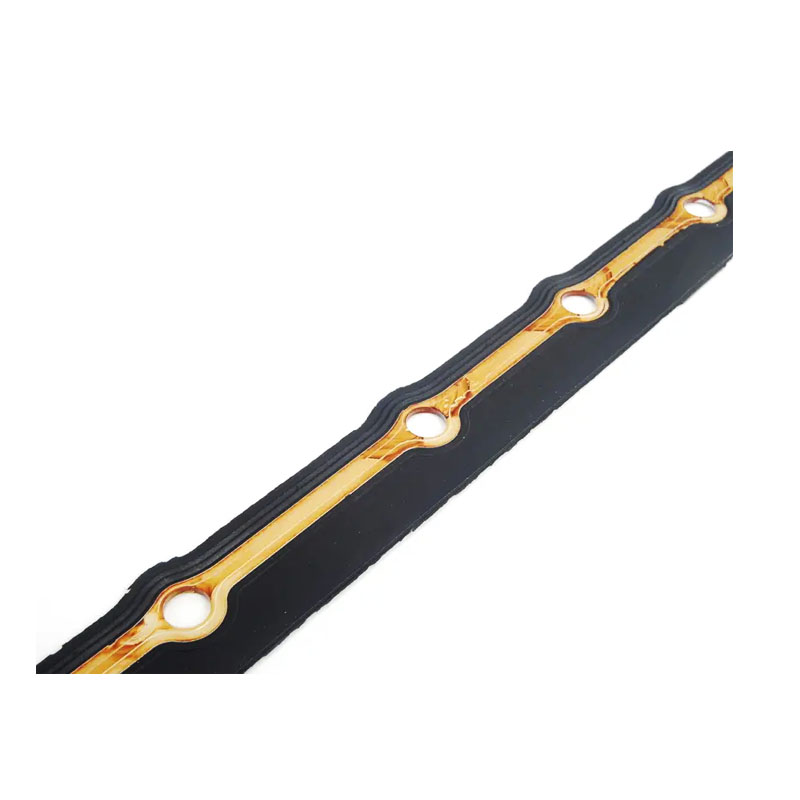engine oil filter gasket
Understanding the Importance of Engine Oil Filter Gaskets
The engine oil filter gasket may seem like a small component in the intricate machinery of an engine, but its role is critical to the overall performance and longevity of a vehicle. This article delves into what engine oil filter gaskets are, their importance, common issues, and maintenance tips to ensure your vehicle runs smoothly.
What is an Engine Oil Filter Gasket?
The engine oil filter gasket is a rubber or silicone seal that sits between the oil filter and the engine. Its primary function is to create a tight seal, preventing oil leaks that could lead to inadequate lubrication of engine parts. This component is essential in ensuring that the oil filter works effectively, preventing dirt and contaminants from circulating through the engine.
Why is the Oil Filter Gasket Important?
1. Preventing Oil Leaks The gasket serves as a barrier against oil leaks, which can lead to low oil levels and potential engine damage. A leak can result in insufficient lubrication, causing wear and tear on engine components.
2. Maintaining Oil Pressure A proper seal helps maintain the correct oil pressure within the engine. This pressure is vital for effective lubrication, cooling, and cleaning of engine parts.
3. Enhancing Engine Performance A well-functioning oil filter gasket ensures that filtered oil reaches the engine smoothly and efficiently, contributing to improved engine performance and fuel efficiency.
4. Extending Engine Life Regularly checking and replacing faulty gaskets can extend the lifespan of an engine. Preventing oil leaks can mitigate the risk of severe engine damage, ultimately saving you money on repairs.
Common Issues with Oil Filter Gaskets
engine oil filter gasket

Like any automotive component, oil filter gaskets can wear out over time
. Some common issues associated with oil filter gaskets include- Cracking or Hardening Exposure to high temperatures and engine oil can cause the gasket to crack or harden, leading to leaks. - Improper Installation If the gasket is not installed correctly, it may not create an adequate seal, resulting in oil leaks.
- Contamination Dirt and debris can compromise the integrity of the gasket, leading to premature failure.
- Aging Over time, gaskets can degrade due to age and repeated exposure to engine conditions.
Maintenance Tips
1. Regular Inspections Perform routine checks on the oil filter and gasket during oil changes. Look for signs of wear, cracking, or leakage.
2. Quality Replacement Parts Always use high-quality gaskets and oil filters. This can prevent premature failure and ensure optimal performance.
3. Proper Installation When installing a new oil filter or gasket, follow manufacturer specifications carefully to avoid improper sealing.
4. Monitor Oil Levels Keep an eye on your oil levels and check for any unexplained drops, as this could indicate a leak.
In conclusion, the engine oil filter gasket may be a minor component, but its significance cannot be overstated. Regular maintenance and timely replacement can prevent major engine issues and enhance vehicle performance. By understanding the role of the oil filter gasket, drivers can take proactive measures to ensure their engines function smoothly for years to come.
-
Simplifying Oil Changes: A Comprehensive Guide to Oil Drain Plugs and Their Variants
News Aug.04,2025
-
Mastering Oil Drain Maintenance: Solutions for Stripped, Worn, and Upgraded Oil Plugs
News Aug.04,2025
-
Fixing Oil Pan Plug Issues: Leaks, Stripped Nuts, and the Right Replacement Solutions
News Aug.04,2025
-
Everything You Need to Know About Oil Drain Plugs: Sizes, Fixes, and Upgrades
News Aug.04,2025
-
Choosing the Right Oil Drain Plug: A Guide to Sizes, Materials, and Drain Innovations
News Aug.04,2025
-
A Complete Guide to Automotive Drain Plugs: Types, Problems, and Innovative Solutions
News Aug.04,2025
-
The Ultimate Guide to Car Repair Kits: Tools and Essentials Every Driver Should Own
News Aug.01,2025
Products categories















